![]() — Home — Business News
— Home — Business News
Weekly Business News from Myanmar
-

Local cooking oil mills holds only 5 percent of market shares in the domestic oil market for this year due to the pandemic
Local cooking oil mills have been struggling to have market share in the domestic oil market for years. Their struggle continues as they only manage to hold 5 percent of the market, U Khin Soe, President of Mynamar Edible Oil Millers Association, told Myanmar Business Today. “We have been struggling even before the COVID-19,” he continued. Their trouble can be traced back as far as the 2000s when imported oils crushed local producers and got worse after the emergence of chemical that can make oil smell like groundnut oil or sesame oil in 2012. Their market share has shrunk over the years, he said. It is mainly because of the price. Consumers, most of them are working people, chose price over quality as a viss (1.63kg) of groundnut oil, sunflower oil, or sesame oil is around K6,000 while imported mixed low-quality oils are sold half of that price. -
Businesses struggle to get back on their feet as the domestic tourism reopens in Myanmar
Domestic travel in Myanmar began to reopen this month, with tourism businesses working to revive the industry as the sector is among those most affected by the COVID-19 pandemic. After Myanmar confirmed its first COVID-19 cases in late March and the government imposed restrictions on travel, the tourism sector saw revenues plummet to zero in April and May. In late May, state and regional tourism authorities ran health and safety checks on hotels, restaurants and transportation businesses and issued safety certificates to those that complied with standards from the Ministry of Health and Sports, according to the Ministry of Hotels and Tourism (MOHT). Under Myanmar’s September 2018 Tourism Law, local governments can decide whether to close or open tourism in their area. The law granted state and regional governments authority over licenses for hotels, tour companies, tour guides and transportation operators. -

The bilateral trade between Thailand and Myanmar border fell by USD $ 520 million as of 19 June in the 2019 – 2020 financial year
Bilateral trade between Thailand and Myanmar through the Hteekhee border between 1 October and 19 June in the 2019-2020 financial year sharply fell to US$1.47 billion from $1.99 billion registered in the year-ago period, according to the data from the Ministry of Commerce. Over the eight months of current fiscal, exports through the Hteekhee border stood at $1.45 billion, while imports fell short of $18.6 million. Exports of natural gas from Taninthayi Region has contributed to the enormous increase in trade through the Hteekhee border since the previous fiscal, said an official from the ministry. Earlier, the Myawady checkpoint sees the largest among the Myanmar-Thailand land border trade. The rise in exports through the Hteekhee crossing had boosted the value of the Myanmar-Thailand land border trade in the 2018-2019FY. In the current fiscal, trade values at Hteekhee checkpoint also surpassed those registered at Myawady crossing. -
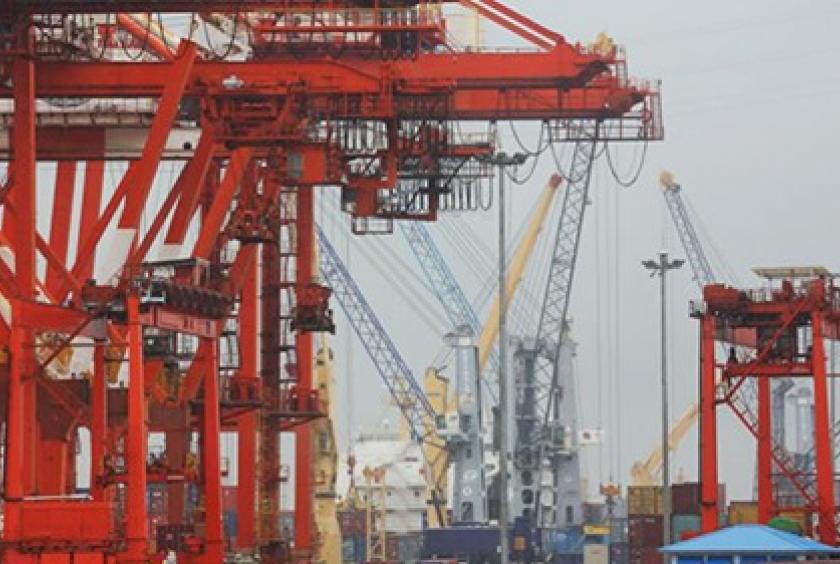
The trade deficit reached over USD $ 1.73 billion in about nine months of 2019 – 2020 fiscal year
As import surpasses export in about nine months of this fiscal year, there has been a trade deficit of over US$1.73 billion exceeding US$770 million compared to the same period of last year, according to data from the Ministry of Commerce. Myanmar exported goods worth US$12.644 billion from October 1 to June 19 in the current 2019-2020 fiscal year, exceeding over US$570 million compared to the same period of last FY. However, import value reached US$14.398 billion exceeding US$1.346 billion compared to last year. Therefore, there has been a trade deficit of US$774.743 billion. -
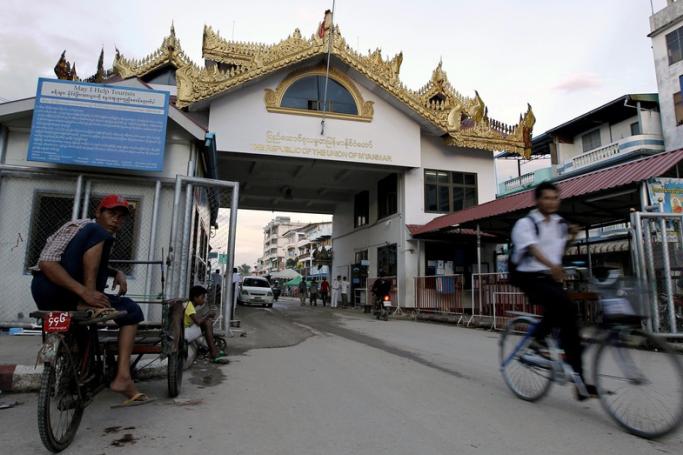
Thailand will reopen 8 border checkpoints with Myanmar to resume cross-border cargo transport and trading from 1 July 2020
Thailand will reopen 37 checkpoints on the border with all neighbouring states, including Myanmar, to resume cross-border cargo transport and trading from July 1, Xinhua reported. The 37 checkpoints on the borders with Myanmar, Laos, Cambodia and Malaysia, so that cargo can be transported, and traders allowed to cross the border. -

The import of raw materials by CMP businesses drops USD $ 104 million in the first eight months of current fiscal year when compared to the same period of previous year
Imports of raw materials by CMP businesses have been valued at US$1.56 billion for eight and half months beginning in October in the 2019-2020 fiscal year, which plunged from $1.64 billion registered in the corresponding period of last fiscal, according to the Ministry of Commerce. Similarly, exports of finished industrial goods slightly fell to $6.5 billion between 1 October and 12 June in the current fiscal year 2019-2020, a sharp decrease of $151.8 million compared with the corresponding period of the previous financial year, according to the Ministry of Commerce. Myanmar’s manufacturing sector is largely concentrated in garment and textiles produced on the Cutting, Making, and Packing basis, and it contributes to the country’s GDP to a certain extent. At present, some CMP garment factories have shut down on the reason for the lack of raw materials due to the coronavirus negative impacts, leaving thousands of workers unemployed. -
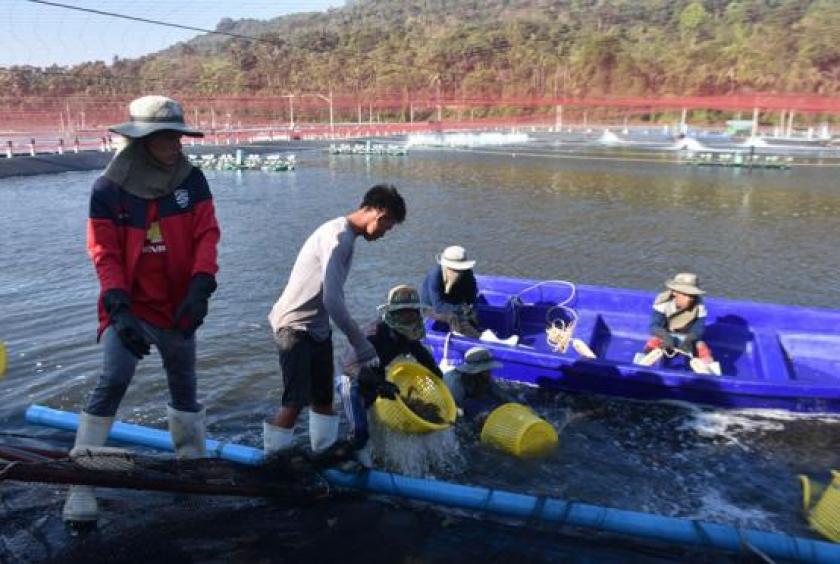
Myanmar government stressed to improve farming capacity to earn USD $ 1 billion yearly from fishery export
If Myanmar can improve domestic farming capacity, up to US$1 billion could be earned yearly from export of fishery products, said Deputy Minister for Commerce Aung Htoo. “If we can try to improve farming capacity locally, we will be in a position soon to earn up to US$1 billion,” the deputy minister said. In the fourth year of the government’s term, the country earned over US$730 million from export of fishery products such as fish and prawn. “As both freshwater and seawater fish farming improves, we could export fisheries worth US$732 million last year,” he added. According to the ministry data, over US$680 million has been earned from fishery export over the past eight and a half months in the current fiscal year, exceeding over US$100 million when compared to the same period of last fiscal year. -
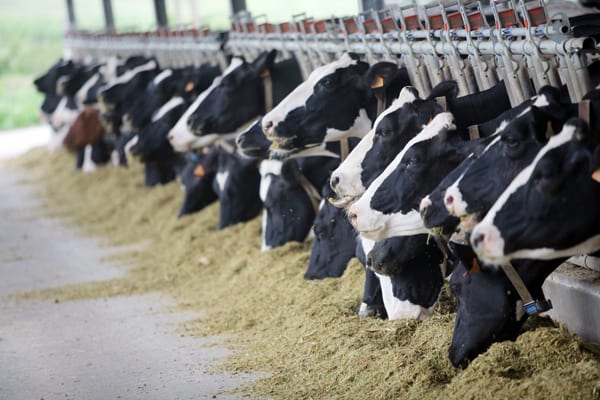
The live cattle exports estimated to reach 1 million in this current fiscal year
The live cattle exports estimated to reach 1 million in this current fiscal year -
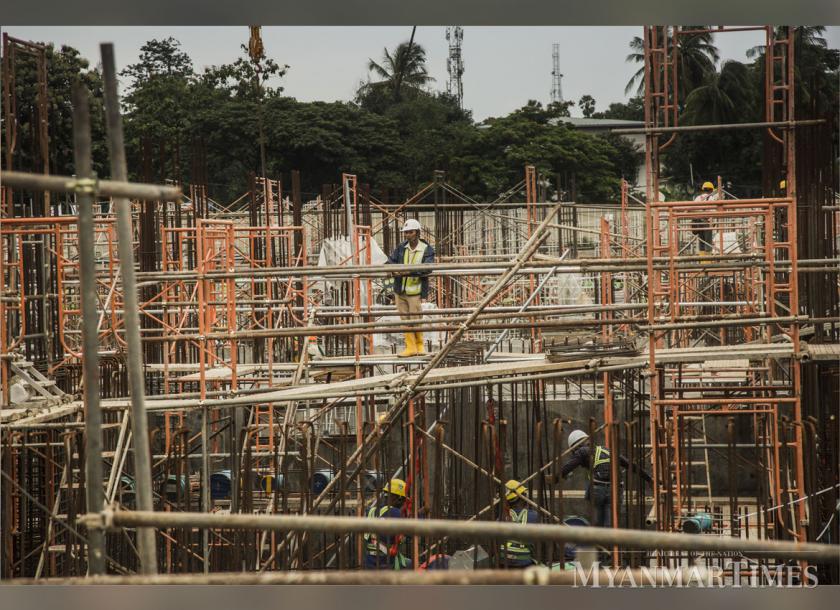
The construction businesses in Myanmar expected to receive share of COVID – 19 loans
The government will deploy its seventh tranche of COVID-19 loans, this time to about 300 business affected by the pandemic, in the first week of July. Construction businesses are likely to be considered for next loan tranche from the K200 billion to K500 billion pool under the government's COVID-19 Economic Response Plan released on April 27, according to the Union of Myanmar Federation Chamber of Commerce and Industry. Due to the outbreak of COVID-19, new construction projects have come to a standstill and construction materials needed for existing projects have been delayed and many are up to four months behind schedule , said U Myo Myint, Managing Director of MKT Construction. “The materials were supposed to have arrived in January but these only came in May as many overseas factories producing building materials like steel have closed,” he said. Other essential items like elevators, aluminum products and tiles have also been delayed, and this has held back work in the construction sector. -
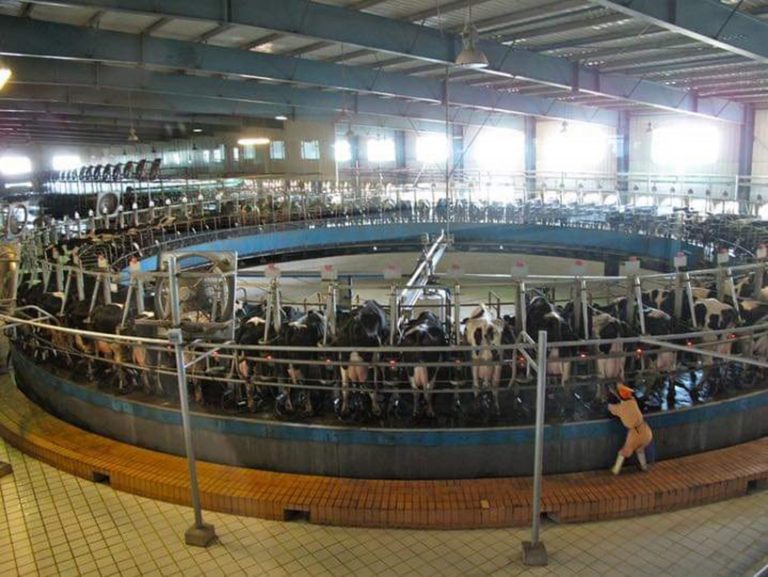
UK-based dairy firm, United Green plans to invest about USD $ 200 million in high-quality breeding of dairy cattle and production of milk and dairy products in Myanmar
The UK-based investment company — United Green is planning to invest approximately US$200 million for high-quality breeding of dairy cattle and the production of milk and dairy products, said Vice President U Moe Kyaw Kyaw of Mandalay Region Chamber of Commerce and Industry (MRCCI). The project is expected to create over 750 jobs for local residents, he added. The United Green, a privately owned strategic investment group, will implement this project with the assistance of the UK’s development finance institution CDC, Asian Development Bank and other financial institutions. The United Green has solid investment experiences of over 60 years in Europe, Asia, Africa and the Middle East. A team led by Mr Peter Crowhurst, CEO of British Chamber of Commerce in Myanmar recently met with officials of MRCCI to discuss proposal related to the breeding of cattle and production matters. They highlighted the participation of those engaged in manageable-scale cattle breeding in the region. The targeted acres of land for the dairy farm are too much, and so, the project will cover Mandalay Region, Sagaing Region and some areas of Shan State.
Business News
Copyright © 2014 Business Information Center All Rights Reserved.







